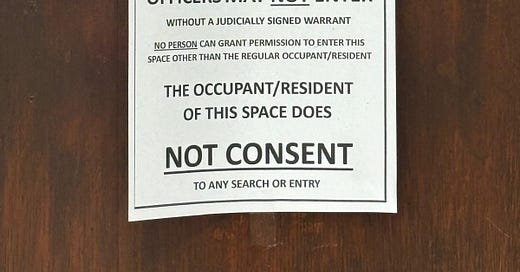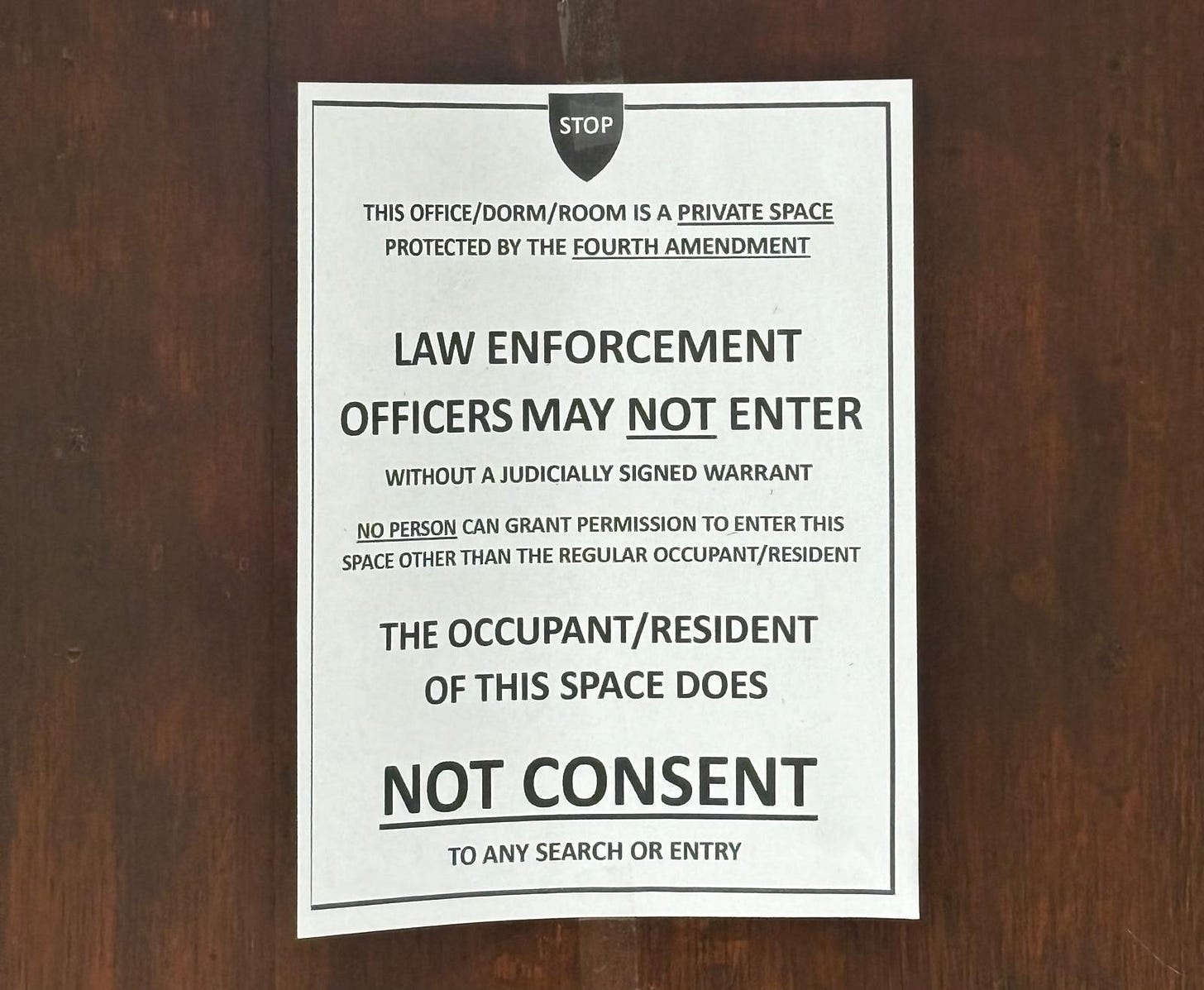What is the Intellectual Vitality of this Vegan Stir Fry?
A unified theoretical framework for the terminal crisis of American academia.
“This is the stupidest day in Harvard history, a record that will be broken by every subsequent day in Harvard history.” - Ancient proverb of The Real Haters of Cambridge, Mass.
I am reliably told that my life is full of problems, which adults take upon themselves to resolve on my behalf. An imagined disadvantage in college admissions brought about, on behalf of White students like myself, the death of affirmative action. When my success in sports was, as a cisgender female athlete, allegedly threatened, a massive political project aimed to disqualify and harass — at maximum — a few dozen transgender athletes nationwide. And concerns for the physical safety of a student with the last name “Goldstein” has prompted well-meaning friends and family to tell me that I ought carry pepper spray — to say nothing of the federal government threatening to pull billions of dollars in grant funding. Without so much as a breath of my own, a tremendous amount of concern has been devoted to my well-being.
Most recently, I have been told that as an elite university student, my voice is being silenced in the classroom. Ironically, this concern manifests as half of a unified consensus that there is simultaneously a catastrophe of student self-censorship, as well as a catastrophe of such dangerous student speech that it requires the intervention of law enforcement.
The university’s response has not exactly inspired confidence. If the past two years have taught me anything, it is that the primary function of an Ivy League administrator is to manage neurosis. Our many deans and vice presidents now exist mostly to mediate and soothe the many fears of the university’s permanently anxious real and imagined stakeholders — donors, board members, congresspeople, alumni, parents, and national news media; to a much lesser extent, students and faculty — for whom the elite institution occupies an outsized amount of mental space.
For administrators, mediating between the university and its stakeholders is sort of akin to parenting a toddler, if the toddler’s tantrums could yank billions of dollars in grants and donations. And much like caring for a toddler, once the administrator finds herself in that position, she is subsumed into the toddler’s world — much less responsible for on-the-ground daily realities of life in Cambridge, and much more responsible for addressing whatever topics the megadonor-toddler decides are the university’s problems. These issues are generally unfalsifiable; once he is persuaded that a problem exists, it becomes extremely hard to prove to a toddler that the problems are imaginary. I was once helping a three-year-old get ready for school, which devolved into a screaming fit when I took off the boots he had put on the wrong feet. I gave up on convincing distant relatives against the necessity of carrying pepper spray on my seven-minute walk to class; instead, I lied and told them that I would consider investing in a mini taser.
To make matters more difficult, higher-ed administration suffers a self-replication problem. Once an issue (real or imagined) enters its remit, in the eyes of an administrator, the solution necessarily becomes administrative. The problem can only be resolved through initiatives, funds, committees, capital-p Projects, and task forces. When the megatoddler decided that Harvard had A Problem, the only viable solution was an administrative one. University leadership cracked down on protest speech, all while proclaiming that it would embark on a massive project in support of civil discourse. Diversity of thought. Intellectual vitality.
Naturally, the capital-I Intellectual Vitality projects manifested as big top-down initiatives mostly divorced from the student experience. Prize money and the hiring of facilitators trickle down until I am entering hour two of a mandatory Intellectual Vitality class dinner, in which the food offerings are cold vegan stir fry on paper plates, and neither community nor productive discourse is being built — just a seething resentment towards the forces that compelled my attendance.1 I am told that my speech is prized. In the next town over, lawful permanent residents are snatched off the street for theirs.
This is the central paradox of The Situation On Campus. The exact nature of our free speech problem has been left deliberately ambiguous. Whose speech is being suppressed? By whom? In which spaces? What if I wanted to engage in Free Speech about the nature of certain Middle Eastern countries’ wartime military conduct — or even, God forbid, write some chalk messages on the Yard pavement about it?
Though no one is really willing to cop to the idea, the oily, unspoken implication of all the hand-wringing is that a campus liberal/leftist consensus is bullying Harvard’s shy conservatives. There is an imagined heterodox thinker in the back of every Gender Studies Gened, afraid to speak his mind for fear of being shouted down by the Woke Mob. The university cowers, promising to protect our heterodox thinker’s Good Speech while cracking down on his classmate’s Bad Speech, refusing to acknowledge the inherent tension.
The foundational rule of Real Haters is to never half-ass a take. For too long, blogs worldwide have coasted on the “some thoughts on…” form, winding and caveating their way through ideas until the reader is left with practically nothing at all, besides a wasted five minutes. Those blogs can go fuck themselves. When I post, it is the definitive text on a subject, without room for elaboration or argument. I am not so much a philosopher, positing theories on the nature of the world from a warm bath, so much as I am a twenty-something Sam Alito, grumpily handing down verdicts. Real Haters readers know that this publication will never waste their time.
With this attitude in mind, I will plead — just stop. The kids are alright. There is no crisis. I need the megatoddlers and their babysitters to believe their own lying eyes over the Twitter threads, WhatsApp groups, and New York Times coverage that claim I am in mortal danger on my daily trip to Blue Bottle. I built Real Haters from the ground up not in the least because I wanted to earn my right to be heard on a massive scale; I do not want to be the beneficiary of programs meant to amplify my voice at the expense of my peers.
I feel like the owner of a kitten, trying in vain to persuade my pet that a dead mouse is not an appropriate gift to leave on my pillow — if the gift was the dissolution of diversity programs and the ousting of faculty, all in the name of my own free expression. This is absurd, and more to the point, it is very, very dumb.
I suppose that it could always be worse. There’s a rumor going around that the group at the intellectual vitality dinner after mine spent the entire evening debating the ethics of BDSM.





